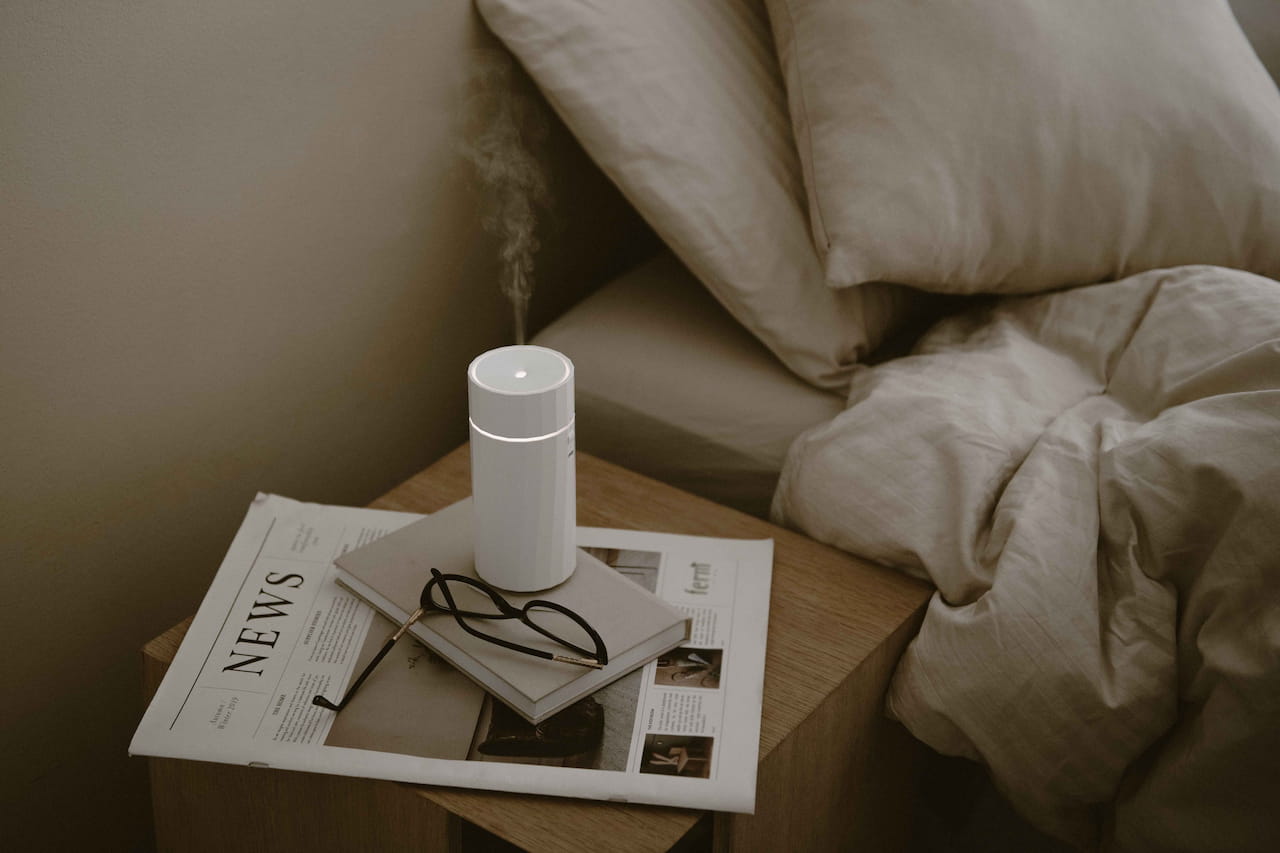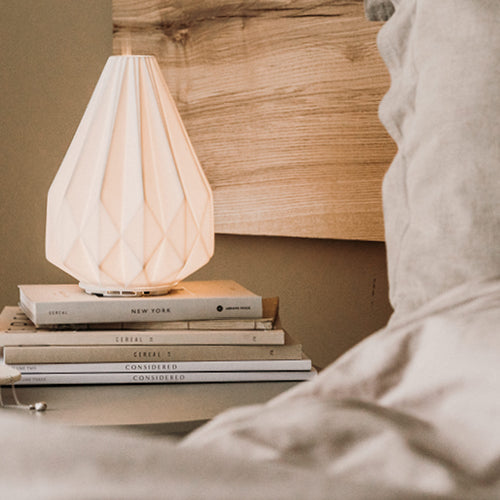World Sleep Day is an annual event highlighting the importance of getting a good night's sleep. While many factors can impact the quality of your sleep, one often overlooked is aromatherapy and essential oils.
This blog post will share tips on creating a night-time ritual that you’ll keep forever and explore the possible benefits of using essential oils as part of a bedtime ritual that promotes better and more restorative sleep.
-
Stick to a regular sleep schedule: Try to go to bed and wake up at the same time each day, even on weekends.
-
Create a soothing environment: Ensure your bedroom is quiet, calm, and dark. Use comfortable bedding and a comfortable mattress.
-
Use aromatherapy and essential oils: For centuries, aromatherapy and essential oils have been utilised for their medicinal benefits by infusing your surroundings with a few drops of pure essential oil blends via an aroma diffuser, lighting an aromatherapy candle, or using a natural wellness mist, you can incorporate the benefits of essential oils into your nightly routine. Experiment with warm, woody, floral scents to calm and relax the senses.
Benefits of using essential oils as part of a bedtime ritual:
-
Promotes relaxation
Essential oils can promote relaxation, which can help you fall asleep faster and sleep more deeply. Some of the best essential oils for relaxation include lavender, chamomile, and ylang-ylang. These oils can be diffused into the air, added to a warm bath, or applied topically to the skin.
-
Reduces stress and anxiety
Stress and anxiety can make it difficult to fall asleep and stay asleep. Essential oils like bergamot, frankincense, and vetiver have been shown to reduce stress and anxiety. When diffused into the air or applied to the skin, these oils can help calm the mind and promote relaxation.
-
Improves sleep quality
Essential oils can also improve sleep quality by promoting deeper and more restorative sleep. Oils like cedarwood and sandalwood have been shown to increase the production of the melatonin hormone, which can help regulate your sleep-wake cycle. By improving the quality of your sleep, you can wake up feeling more refreshed and energized.
-
Relieves respiratory issues
Respiratory issues like allergies and asthma can make it difficult to breathe at night, which can disrupt your sleep. Essential oils like eucalyptus, peppermint, and tea tree oil have natural decongestant properties that can help clear your airways and make them easier to breathe. By promoting better breathing, these oils can help improve the quality of your sleep.
-
-
Avoid electronic devices before bed: The blue light emitted by electronic devices can disrupt sleep. Avoid using your phone, tablet, or computer for at least an hour before bed.
-
Limit caffeine and alcohol intake: Caffeine and alcohol can interfere with sleep quality. Limit your intake of these substances, especially in the hours leading up to bedtime.
-
Practice mindfulness: Try to relax before bed by practising deep breathing, meditation, or gentle stretching.
- Read a book before sleep: One study found that overall, reading a book in bed before going to sleep improved sleep quality.
Recommended for promoting a restful bedtime routine...

World Sleep Day is an essential reminder of the importance of sleep and its role in our overall health and well-being. By creating a sleep-friendly environment in your bedroom, such as using aromatherapy and essential oils, practising relaxation techniques, or reading a book, you can help promote healthy sleep habits and wake up refreshed and ready to tackle the day ahead.
Remember, a good night's sleep is a key component of a healthy lifestyle, and it's something that everyone deserves. Happy World Sleep Day!
#WorldSleepDay







